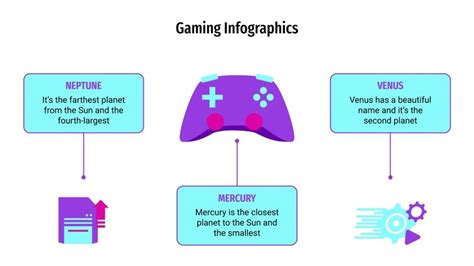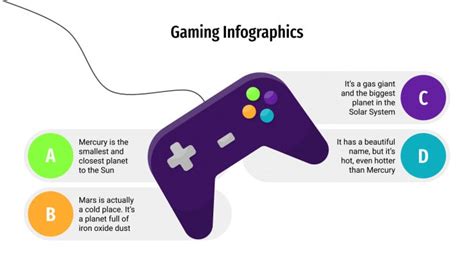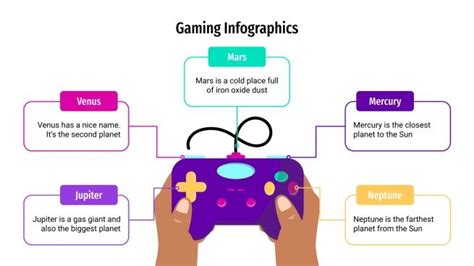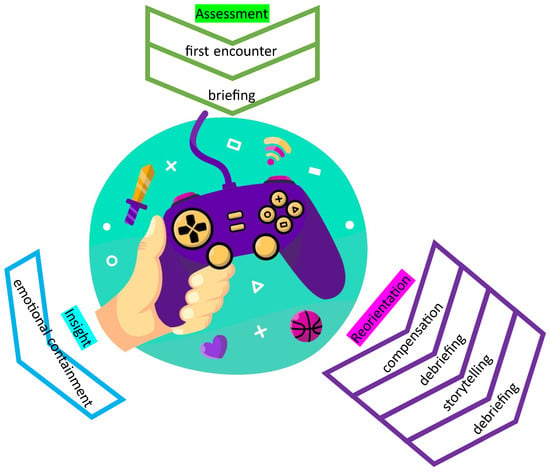“Overcooked,” a chaotic yet charming cooperative cooking game, has redefined how players collaborate and communicate in the gaming world. Released in 2016, this multiplayer hit revolutionized the cooperative genre, blending fast-paced action with intricate team-based gameplay. By throwing players into increasingly complex kitchen environments, “Overcooked” challenges them to work together under pressure, balancing tasks and strategies. This article explores how “Overcooked” not only introduced unique mechanics but also reshaped expectations for cooperative gaming. Through its engaging design and collaborative challenges, it has left a lasting impact on the genre, inspiring new titles and setting a new standard for teamwork in gaming.
ujojan.net invites you to delve into this topic thoroughly.
1. Introduction to Overcooked: Overview and Basic Gameplay Mechanics
“Overcooked,” a cooperative cooking simulation game developed by Ghost Town Games and released in 2016, throws players into a whirlwind of increasingly chaotic kitchens. The game’s core mechanic centers on teamwork, as players must collaborate to prepare and serve meals within strict time limits. While deceptively simple, the gameplay presents a challenging experience, requiring players to master the art of chopping ingredients, cooking food, plating dishes, and maintaining a clean workspace. All this takes place amidst a backdrop of obstacles such as moving platforms, fires, and tight spaces, adding an extra layer of complexity to the culinary chaos.
“While enjoyable to play solo, “Overcooked” truly shines in multiplayer mode, where 2 to 4 players collaborate to fulfill orders efficiently. Communication is crucial, as each player must handle specific tasks within chaotic environments. Featuring vibrant, cartoonish visuals and intuitive controls, “Overcooked” boasts accessible gameplay that escalates in complexity as players progress. The pressure to cooperate in fast-paced scenarios creates a dynamic experience, making it one of the most notable cooperative games of recent times. Its unique blend of strategy, teamwork, and lighthearted chaos has redefined player interaction in gaming.”

2. Evolution of Cooperative Gaming: Historical Context and Overcooked’s Impact
Cooperative gaming has been a mainstay in the gaming industry for decades, its evolution spanning from basic multiplayer modes in early arcade and console games to highly intricate, team-oriented experiences. Pioneering titles like “Gauntlet” and “Contra” set the stage, providing players with the opportunity to work together towards shared goals. However, it was not until the late 2000s, with the emergence of games such as “Left 4 Dead” and “Portal 2,” that cooperative gameplay truly rose to prominence for its depth and engaging mechanics. These games highlighted not only shared objectives but also the importance of intricate collaboration and communication between players.
“Overcooked,” launched in 2016, breathed new life into the cooperative genre through its innovative approach to teamwork. Unlike most multiplayer games, which emphasize combat or puzzle solving, “Overcooked” presents a dynamic, task-oriented environment where effective communication is paramount. Its delightful and frenetic gameplay reshaped player interaction, fostering reliance and camaraderie, transforming every task into a collaborative challenge. By elevating simple cooking mechanics into intricate, teamwork-driven scenarios, “Overcooked” proved that cooperative gaming could be both approachable and profoundly engaging. In doing so, it established a new benchmark for future multiplayer games in terms of collaboration and strategic gameplay.

3. Game Design Elements: Visuals, Level Design, and Character Dynamics
“Overcooked” shines in its game design, blending whimsical visuals, creative level design, and dynamic character interactions to deliver an immersive and enjoyable cooperative experience. The game’s art style is vibrant and cartoonish, featuring exaggerated character movements and colorful kitchen settings that transform the chaos into lighthearted fun. Each kitchen environment is distinct, ranging from standard restaurant setups to more outlandish locations like moving trucks, icy landscapes, and even volcanoes, adding variety and excitement to every level.
“Overcooked” thrives on its engaging level design, where each stage presents new challenges and obstacles. Conveyor belts, collapsing floors, and spreading fires demand constant adaptation and effective communication from players. The game further elevates the experience by introducing character dynamics, forcing players to strategize, divide tasks, and coordinate movements to avoid collisions and delays. The game’s simple controls and universally appealing characters make “Overcooked” accessible for players of all skill levels, ensuring that teamwork remains at the heart of the gameplay.

4. Player Collaboration and Communication: Key Features and Unique Challenges
“Success in “Overcooked” hinges on player collaboration and communication. The game’s frenetic pace and intricate kitchen layouts demand players to efficiently divide tasks and work together seamlessly to meet order deadlines. Each player assumes a specific role, from chopping ingredients to cooking and plating dishes, relying on teammates to fulfill their duties for the team’s triumph. This dynamic fosters a deep sense of interdependence, where a lack of effective communication can quickly descend into culinary chaos.”
The kitchen in “Overcooked” presents a unique challenge: its ever-changing dynamics. As levels advance, players face a constant barrage of obstacles, including moving platforms, fires, and tight spaces. This forces them to adapt their strategies in real-time, adding an extra layer of difficulty. Effective communication becomes crucial as players must update each other on their tasks and adjust their actions on the fly to avoid bottlenecks and complete the level’s demands. This combination of challenges and the game’s inherently collaborative nature make “Overcooked” an exceptional test of teamwork and adaptability.
5. Overcooked’s Influence on the Genre: Comparisons with Similar Titles
“Overcooked” has left an undeniable mark on the cooperative gaming genre, distinguishing itself through its innovative approach to teamwork and communication. Unlike many cooperative titles that center around combat or puzzle-solving, “Overcooked” presents a distinctive, real-time task management experience built around the act of cooking. Its emphasis on collaboration under pressure has inspired similar games that prioritize team dynamics, such as “Moving Out” and “Tools Up!” These titles follow a similar formula of chaotic, task-driven gameplay set in lighthearted environments.
Games like “Left 4 Dead” and “Portal 2” featured cooperative aspects, but their emphasis was on strategic thinking and puzzle-solving in separate scenarios. “Overcooked,” however, distinguishes itself by demanding constant collaboration from players, without any respite. This constant pressure creates a heightened sense of tension and urgency throughout each level. Its accessible gameplay, coupled with intricate teamwork challenges, has cemented its position as a model for future cooperative games. “Overcooked’s” success demonstrates the captivating nature of titles that center on group problem-solving and multitasking, thereby redefining the landscape of the cooperative genre.
6. Community Reception and Critical Acclaim: Success Metrics and Player Feedback
“Overcooked” garnered widespread acclaim from both gamers and critics for its innovative approach to cooperative gameplay. Immediately upon release, the game captivated players with its engaging, chaotic multiplayer mechanics and accessible design, appealing to both casual and hardcore audiences. Critics lauded its ability to seamlessly blend simplicity and complexity, noting how the intuitive controls allowed for easy entry, while the progressively challenging levels guaranteed sustained enjoyment and replayability.
The game’s emphasis on communication and teamwork made it a favorite for social gaming sessions with friends and family. The fast-paced, frantic nature of the game led to moments that were both hilarious and intense, fostering camaraderie and creating memorable gameplay experiences. The game’s visual charm and diverse level design further increased its appeal, making it a hit with players of all ages.
“Overcooked” surpassed its sales projections and received critical acclaim, earning a BAFTA Games Award for Best Family Game. Its success extended beyond initial release, with the development of sequels and downloadable content further expanding its presence and influence in the gaming landscape. The game’s resounding reception highlighted a clear demand for cooperative experiences requiring real-time teamwork, solidifying its enduring impact on both casual multiplayer gaming and the broader cooperative genre.
7. Future of Cooperative Gaming: Lessons from Overcooked and Emerging Trends
“Overcooked’s success has set a new standard for cooperative gaming, emphasizing the crucial role of teamwork, communication, and accessibility in game design. By placing a strong emphasis on collaborative gameplay and real-time challenges, it has inspired developers to explore similar mechanics in their own projects, fostering a growing trend towards games that prioritize social interaction and player cooperation over competitive play.”
Cooperative gaming is evolving to embrace a more casual and family-friendly approach, welcoming players of all ages to participate together. As gaming becomes increasingly social, developers are likely to prioritize experiences that foster teamwork, laughter, and connection among players. Technological advancements, including virtual reality and augmented reality, offer exciting new avenues for immersive cooperative experiences, further enhancing player collaboration.
“The innovative blend of chaos and cooperation found in “Overcooked” has set a new standard for cooperative gaming, inspiring future game designs. As players increasingly crave engaging social experiences, the demand for games that foster collaboration will only grow, leading developers to draw inspiration from “Overcooked” and its emphasis on teamwork to create even more immersive and engaging cooperative experiences.”
“Overcooked” has undeniably transformed the landscape of cooperative gaming, introducing innovative mechanics that emphasize teamwork and communication. Its vibrant design and engaging gameplay have not only captivated players but also set a new standard for future titles in the genre. As developers continue to draw inspiration from its success, the future of cooperative gaming looks promising, with emerging trends prioritizing collaboration and social interaction. Ultimately, “Overcooked” serves as a testament to the power of cooperative experiences, highlighting the joy that comes from working together in a fun, chaotic environment.
ujojan.net

